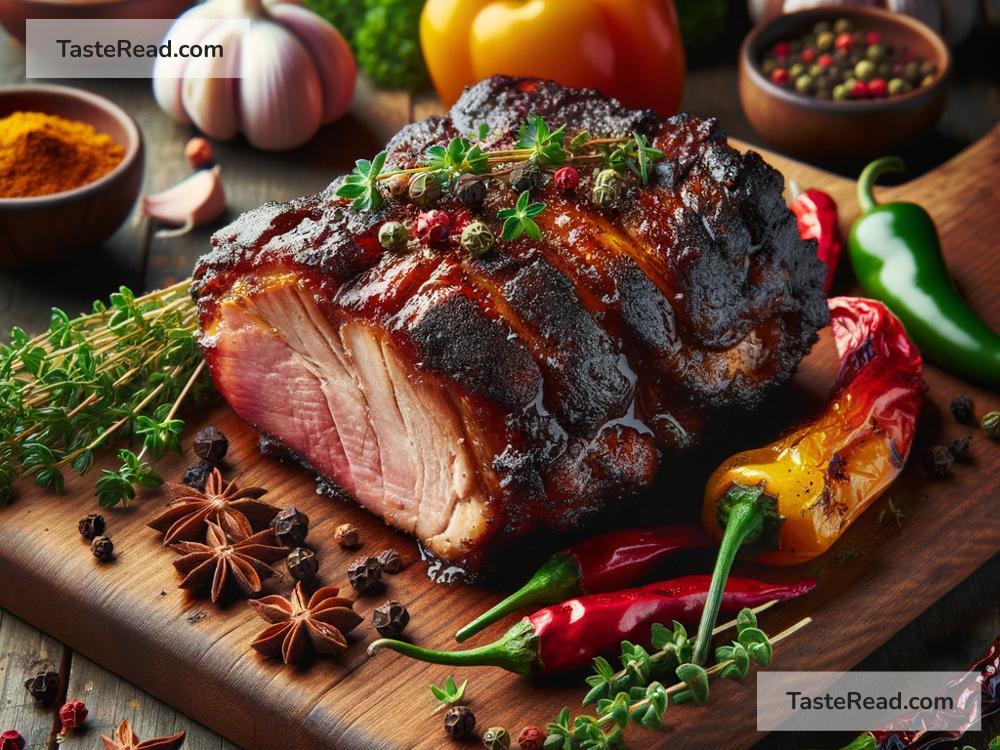Exploring the Journey of Jamaican Jerk Pork
Food, in its essence, is not just about sustenance. It is a story, an art form, and a representation of culture and tradition. One such culinary masterpiece that has traveled across borders and time, capturing the hearts and taste buds of many, is the Jamaican Jerk Pork. This delicious dish is not just a meal; it’s an experience, a taste of Jamaica’s rich heritage and vibrant flavors. So, let’s embark on a journey to explore the origins, evolution, and making of this iconic dish.
The Roots of Jerk Cooking
The story of Jerk cooking begins with the indigenous people of Jamaica, the Taíno Indians, long before the island became a melting pot of cultures from around the world. The Taíno people had a unique method of cooking meat over a slow fire, using green wood to help “jerk” or dry out the meat. This technique not only cooked the meat but also preserved it, which was essential in the tropical climate.
However, it was not until the arrival of African slaves in the 17th century that jerk cooking truly evolved. The Africans brought with them not only their resilience and strengths but also their rich culinary traditions, merging them with the Taíno technique. They introduced spices and marinades, transforming the simple method of jerking into what we now recognize as Jamaican Jerk cooking.
The Explosive Flavor Profile of Jerk Pork
At the heart of Jamaican Jerk Pork is its marinade, a fiery blend of allspice, Scotch bonnet peppers, thyme, green onions, cinnamon, nutmeg, and garlic. Each ingredient plays a pivotal role; the allspice, locally known as pimento, adds warmth, while the Scotch bonnet peppers bring the heat Jamaica is famed for. This marinade, combined with the slow cooking technique, ensures the pork is bursting with flavors, tender and juicy.
The Cultural Impact of Jerk Pork
Jerk pork is much more than a popular dish in Jamaica; it’s a significant part of the island’s cultural identity. It embodies the spirit of resilience, creativity, and community. Jerk cooking traditionally involves a social gathering, with families and friends coming together, much like a barbeque. This social aspect of jerk cooking highlights the importance of community and shared experiences in Jamaican culture.
Furthermore, the international popularity of Jamaican Jerk Pork speaks volumes about the global impact of Jamaican culture, through music, sports, and cuisine. Jerk festivals and restaurants across the world have introduced people to the rich flavors of Jamaica, making Jerk Pork a global ambassador of the island’s culinary heritage.
Making Authentic Jamaican Jerk Pork at Home
Creating authentic Jamaican Jerk Pork at home might seem daunting, but it’s quite achievable. Begin by sourcing authentic spices; the fresher, the better. The marinade is key, so ensure you give the pork enough time to soak in all the flavors – overnight marinating is best. When it comes to cooking, replicating the traditional pit fire might not be practical for everyone, but a barbecue grill or even an oven can work with some adjustments. The goal is to cook the pork slowly, allowing it to become tender and infused with the smoky, spicy flavors. Remember, the essence of jerk cooking lies in patience and passion.
Embracing the Journey
Jamaican Jerk Pork is more than a dish; it’s a beautiful narrative of history, culture, and tradition. From its indigenous Taíno roots to its evolution through African influence, and its current status as an international culinary delight, jerk pork embodies Jamaica’s enduring spirit.
Whether you’re savoring it on a bustling street in Kingston, by a seaside shack, or trying to recreate it in your kitchen, Jamaican Jerk Pork invites you to partake in a timeless journey. It’s a journey of flavors that tells the tale of a resilient and vibrant culture, a reminder that food is indeed an exquisite form of storytelling.
In embracing the journey of Jamaican Jerk Pork, we also embrace the richness of the world’s cultures, and the shared human experience of coming together, over a meal. It’s a testament to the power of cuisine in bridging cultures and creating bonds that transcend geographical and cultural boundaries. So, the next time you take a bite of that spicy, aromatic jerk pork, remember, you’re not just tasting food; you’re experiencing a piece of Jamaican soul.


